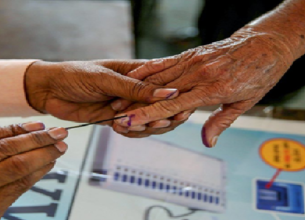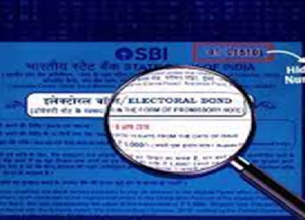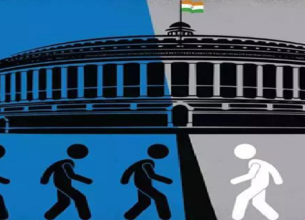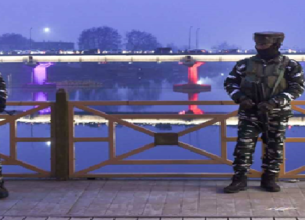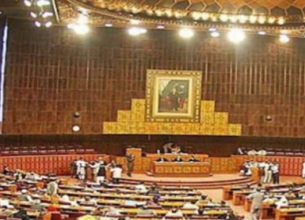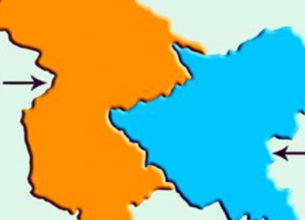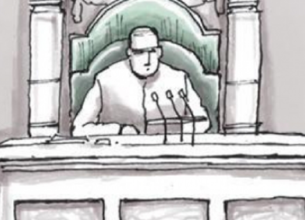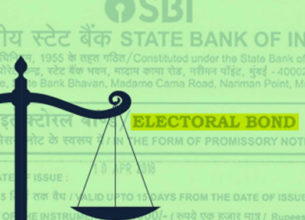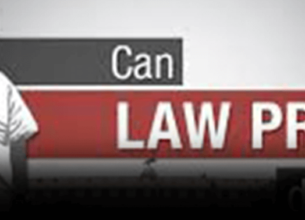IS ANTI-DEFECTION AN EFFECTIVE LAW?
03, Jan 2020
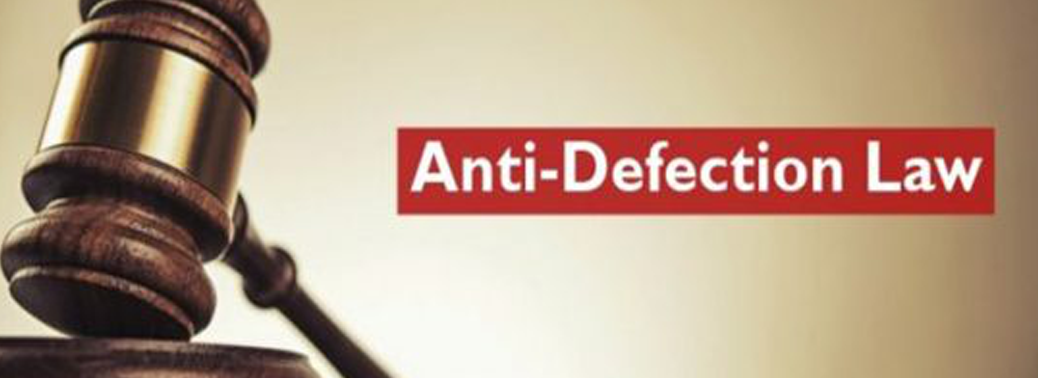
Prelims level : Election & Electoral Returns
Mains level : GS-II Salient features of the Representation of People’s Act.
Context:
- The Karnataka by-election results have widely put to display the ineffectiveness of the Anti-Defection Law.
About Anti-Defection Law:
- The Tenth Schedule of Indian Constitution is popularly known as the Anti-Defection Act.
- Original constitution had no such provisions. It was included in the Constitution in 1985 by the Rajiv Gandhi government.
- The main intent of the law was to deter “the evil of political defections” by legislators motivated by the lure of office or other similar considerations.
- The grounds for disqualification under the Anti-Defection Law includes
- As a pre-condition for his disqualification, his abstention from voting should not be condoned by his party or the authorized person within 15 days of such incident.
- Articles 102 (2) and 191 (2) deals with anti-defection.
- The law disallows MPs/ MLAs to switch parties after elections, make the members follow the whips issued by their party.
- It also applies to a nominated member if he/ she join a political party after 6 months of nomination and to an independent candidate if he/she joins a party after the election.
a) If an elected member voluntarily gives up his membership of a political party.
b) If he votes or abstains from voting in such House contrary to any direction issued by his political party or anyone authorized to do so, without obtaining prior permission.
c) Going against the party whip.
What is not a Defection?
- A split in a political party won’t be considered a defection if a complete political party merges with another political party.
- If a new political party is created by the elected members of one party
- If he or she or alternative members of the party haven’t accepted the merger between the two parties and opted to perform as a separate group from the time of such a merger.
What are the Loop-Holes?
- Resignation as MLA was not one of the conditions.
- Exploiting this loophole, the 17 rebel MLAs in Karnataka resigned, their act aimed at ending the majority of the ruling coalition and, at the same time, avoiding disqualification.
- However, the Speaker refused to accept the resignations and declared them disqualified. This was possible as the legislation empowers the presiding officer of the House (i.e. the Speaker) to decide on complaints of defection under no time constraint.
- The law originally protected the Speaker’s decision from judicial review.
- However, this safeguard was struck down in Kihoto Hollohan v. Zachillhu and Others (1992).
- While the SC upheld the Speaker’s discretionary power, it underscored that the Speaker functioned as a tribunal under the anti-defection law, thereby making her/his decisions subject to judicial review.This judgment enabled judiciary to become the watchdog of the anti-defection law, instead of the Speaker, who increasingly had become a political character contrary to the expected neutral constitutional role.
- The same could be witnessed in Shrimanth Balasaheb Patel & Ors vs. Speaker Karnataka Legislative Assembly & Ors (2019), where the three-judge SC bench upheld the then Karnataka Speaker’s decision of disqualification of the 17 rebel MLAs.
- However, it struck down his ban on the MLAs from contesting elections till 2023, negating the only possible permanent solution to the problem.
- The Supreme Court played the role of a neutral umpire in this political slugfest.
- But, the spectacle of MLAs hoarded in a bus, and being sent to a resort, openly exposed not just the absence of ideological ties between a leader and his party, but also her/his weak moral character.
- It was also upsetting to see public acceptance of such malpractices as part of politics, with some even calling it Chanakya niti!
Is There any Safeguard for Anti-Defection?
- The Anti-Defection Law provided a safeguard for defections made on genuine ideological differences. It accepted “split” within a party if at least one-third of the members of the legislative party defect, and allowed the formation of a new party or “merger” with other political party if not less than two-thirds of the party’s members commit to it.
- The 91st Constitutional Amendment introduced in 2003 deleted the provision allowing split.
- The 91stAmendment also barred the appointment of defectors as Ministers until their disqualification period is over or they are re-elected, whichever is earlier.
- But, obviously, such laws have not put to rest the trend of defections.
What should be done?
- The main issue, as witnessed in Karnataka, is that the defectors treat disqualification as a mere detour, before they return to the House or government by re-contesting.
- This can only be stopped by extending the disqualification period from re-contesting and appointment to Chairmanships/Ministries to at least six years.
- The minimum period limit of six years is needed to ensure that the defectors are not allowed to enter the election fray for least one election cycle, which is five years.
- Of course, MLAs can still be bought from the ruling dispensation to bring it to a minority by being paid hefty sums, simply to stay at home for six years.
Contradictory Reforms to the Law:
- Nowadays, no real democratic discussions happen inside political parties about major issues affecting the country. Individual MPs and MLAs need to be empowered to think independently.Anti-defection law should be applied only to confidence and no-confidence motions (Dinesh Goswami Committee on electoral reforms, 1990) or only when the government is in danger (Law Commission (170th report, 1999).
- The rationale that a representative is elected on the basis of the party’s programme can be extended to pre-poll alliances.
- Instead of making Speaker the authority for disqualification, the decision should be made by the president or the governor on the advice of the Election Commission. This would make the process similar to the disqualification procedure as given in Representation of Peoples Act (RPA).
- There can be additional penalties for defectors as well.



